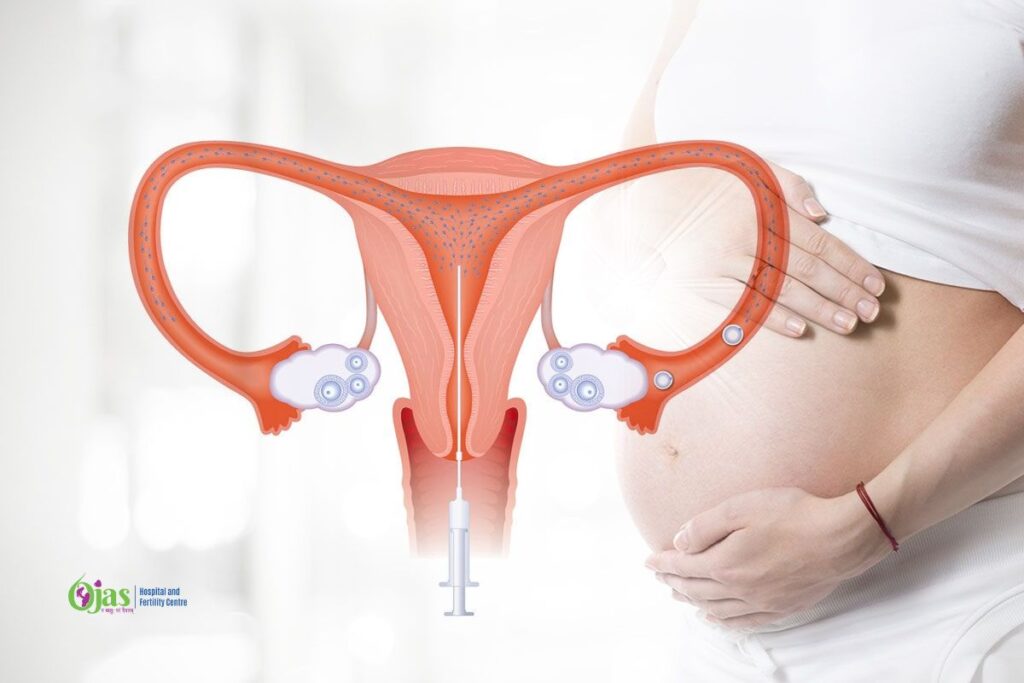IUI is intrauterine insemination. It is the instillation of processed semen inside the uterine cavity. IUI can be done either with the husband’s semen or with donor semen. It is indicated in mild to moderate male factor infertility, such as oligozoospermia (reduced sperm count), teratozoospermia (abnormal sperm morphology), and asthenozoospermia (reduced sperm motility). Additionally, in cases of non-consummation of marriage (no penetrative intercourse) due to erectile dysfunction, premature ejaculation, etc. IUI with donor semen may be advised in cases of azoospermia in the husband.
In female factor infertility, IUI is advised in cases of female subfertility, such as PCOS, endometriosis, unilateral tubal block, and poor ovarian reserve. It may also be advised by your doctor in cases of prolonged unexplained infertility.
Now, let’s discuss the process of IUI. The treatment starts on day 2/3 of the menstrual cycle. Your gynecologist will perform a baseline scan to rule out any cysts and check the antral follicle count. Then, they will start some medications for ovulation induction. Gonadotropin injections may be needed in some patients. Serial ultrasounds are required for follicular monitoring. When the follicle is ready (18-20mm size), a trigger is given for the timing of IUI. IUI is done 36-40 hours post HCG trigger. In some cases, double IUI may be suggested, which is generally done both pre and post ovulation. Checking for ovulation is preferable before IUI. However, one can proceed with IUI even if there is no ovulation, as if the trigger is given properly, ovulation will definitely happen in some time, and sperm remain viable for 72 hours.
After IUI, medicines are given for 15 days, and then the result can be checked using a urine pregnancy test at home.
FAQs:
- What is the success rate of IUI? The success rate of IUI depends on many factors, but a single well-timed IUI may have a success rate of 15-20%.
- How many IUIs can be done? If the patient’s age is less than 35 years, we can do 4-6 IUIs. If we don’t achieve pregnancy even after 4 well-timed IUIs, the probability of success decreases further.
- Do we need to rest after IUI? Rest is absolutely not required after IUI. It’s better to get back to your routine as early as possible, as it will help to keep you calm.
- Will sperm leak out after we get up post IUI? The doctor will instill processed semen inside your uterus, so sperm will not leak even if the patient gets up immediately. You may feel a little wet after the procedure as the doctor uses a cleaning solution. Additionally, cervical mucus will be disturbed after IUI.

